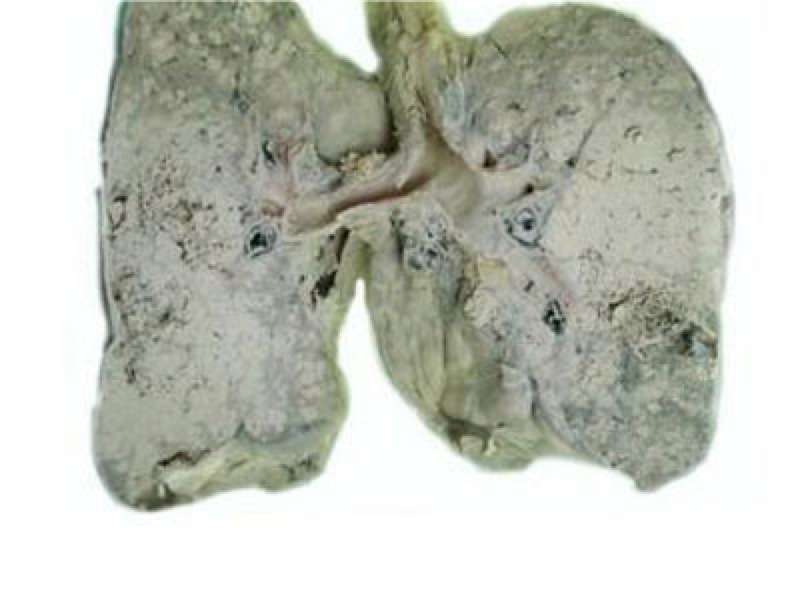Get rid of asthma freely (2)
Basic articles
1. How to detect pediatric asthma early

Children often have cold symptoms such as runny nose, sneezing, cough, etc. The cold will soon be wheezing, after a long time The antibiotic treatment has no effect, like this situation is likely to be asthma. Some children will have a stubborn cough after vigorous exercise or cold, which is also ineffective after a lot of anti-inflammatory treatment. Some children only have symptoms such as itchy nose, sneezing, and runny nose at first. Parents often do not pay too much attention because their children have rhinitis. In fact, a considerable part of these children who are believed to have rhinitis will develop asthma in the future.
2. Symptoms of acute asthma attacks in children
In acute attacks, the child is restless, sitting and breathing, shrugging and wheezing to exhale Difficulties are more pronounced, with a pale complexion, flapping nose, bruising lips and nails, cold sweats throughout the body, assisted contraction of respiratory muscles, self-complaint chest tightness, shortness of breath, and even words that cannot be continuous when speaking. After proper treatment, if the white viscous sputum can be discharged after coughing, the symptoms can be slightly alleviated. Infants and young children often like to be held by their parents, with their heads resting on their shoulders, feeling uneasy and irritable. The three concave signs appear when inhaling. Auscultation may have wheezing sounds or wet and dry rales, and sometimes breathing sounds can be covered by it, such as severe airway obstruction, breathing sounds can be significantly weakened. The heart rate is often accelerated, and the liver and spleen can be touched under the ribs when emphysema occurs, and heart failure can be complicated in severe cases.
3. Clinical manifestations of pediatric bronchial asthma
①Often there are sneezing, runny nose, itchy nose, itchy throat, cough (allergic cough), etc. Aura symptoms. ② There may be irritating cough and white foamy sputum. ③ Recurrent dyspnea, accompanied by wheezing sounds at night. ④ At the time of the attack, both lungs could hear extensive wheezing sounds, some could hear wet rales, and percussion had unvoiced sounds. ⑤ Severe breathing difficulties occur during an asthma attack. If the sympathomimetic drugs and theophylline drugs are still used without reasonable relief, it is called a critical asthma condition.
4. How to diagnose asthma
detailed medical history, find allergens, understand family and my allergic history, combined with exhaled breathing of children Difficult, the diagnosis of wheeze in the lungs. If any of the following symptoms or signs exist, asthma should be considered. Repeated coughing, wheezing, repeated breathing difficulties and chest tightness. Have a history of eczema, allergic rhinitis, asthma or family history. In particular, pay attention to patients whose cough lasts for more than one month, antibiotics are ineffective, and bronchodilators are effective.
5. How to classify the duration of childhood asthma
Children’s asthma is divided into 4 levels according to their daytime symptoms, nighttime symptoms, and lung function detection level, They are intermittent attacks, mildly sustained, moderately sustained, and severely sustained. Choose the appropriate treatment plan according to the level of asthmatic children. This classification is usually evaluated at the initial diagnosis. In the course of asthma treatment, the control level is used as an important evaluation basis, which is divided into control, partial control, and uncontrolled selection and adjustment of treatment.
6. What is cough variant asthma
Children with asthma show repeated coughing, antibiotic therapy is ineffective, and asthma medication is effective. This type of asthma with cough as the main manifestation, called cough variant asthma, usually starts earlier and usually manifests before 3 years of age. If it can develop into a typical asthma without treatment, it can always be a cough variant. asthma.
7. Pediatric asthma should be distinguished from those diseases
①Bronchiolitis: more common in infants under 1 year old, frequent in winter and spring, can be present Epidemic, its dyspnea occurs relatively slowly and responds poorly to bronchodilators.
② Wheezing bronchitis: manifested as bronchitis with wheezing, wheezing disappears with inflammation control; although there is wheezing but no obvious breathing difficulties; the attack is slow, but not sudden or sudden stop, the course of the disease continues About 1 week; with age, the number of wheezing episodes gradually decreases, but there are still about 10% wheezing bronchitis that later change to bronchial asthma.
③Airway foreign body: persistent asthma-like dyspnea may occur, but the obstruction of foreign body is mostly in the trachea or large bronchus, the main performance is mainly inhalation difficulty, and asthma is mainly exhaled breathing difficulty . Foreign bodies such as in one side of the trachea, wheezing and other signs are limited to the affected side.
④ Bronchial lymph node tuberculosis: can cause intractable cough and asthma-like breathing difficulties, but there is no significant paroxysmal attack. Tuberculin test is positive, X-ray chest X-ray examination is helpful for diagnosis.
Related Articles

- Early Signs of Bladder Cancer
- What are the early symptoms of bladder cancer?
- 2020-12-17

- Symptoms of depression
- What are the symptoms of depression?
- 2020-12-17

- How to prevent depression
- How to prevent depression?
- 2020-12-17

- Early symptoms of lung cancer
- 2020-12-17

- Drinking water can prevent heat stroke
- Actually, the hot weather is not the direct cause of heat stroke. Heat stroke is mostly caused by sweating caused by heat. Under the high temperature in summer, the body sweats tens of tim
- 2020-08-03

- Office workers should beware of cervical spondylosis
- Cervical spondylopathy is mainly caused by degeneration of cervical intervertebral disc and hyperostosis of cervical spine, with neck and shoulder pain, numbness of upper extremities and d
- 2020-08-03
